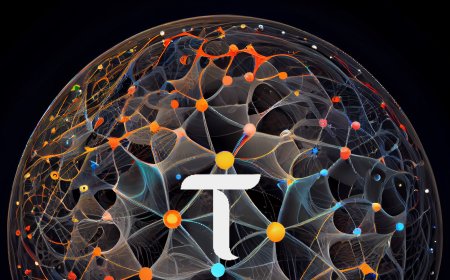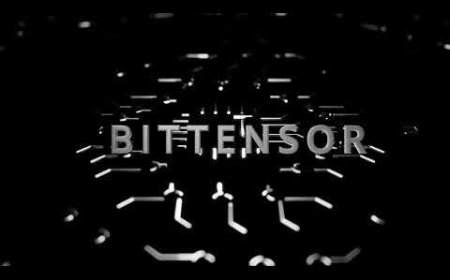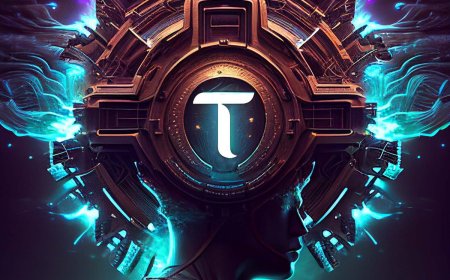Decentralized AI and Blockchain: A Future Powered by BitTensor
In the evolving world of Web3, decentralization isn't just reshaping finance but also the realms of AI and machine learning. Just as decentralized finance (DeFi) has disrupted traditional banking, decentralized AI has the potential to transform data sharing, collaboration, and the incentives around machine intelligence.
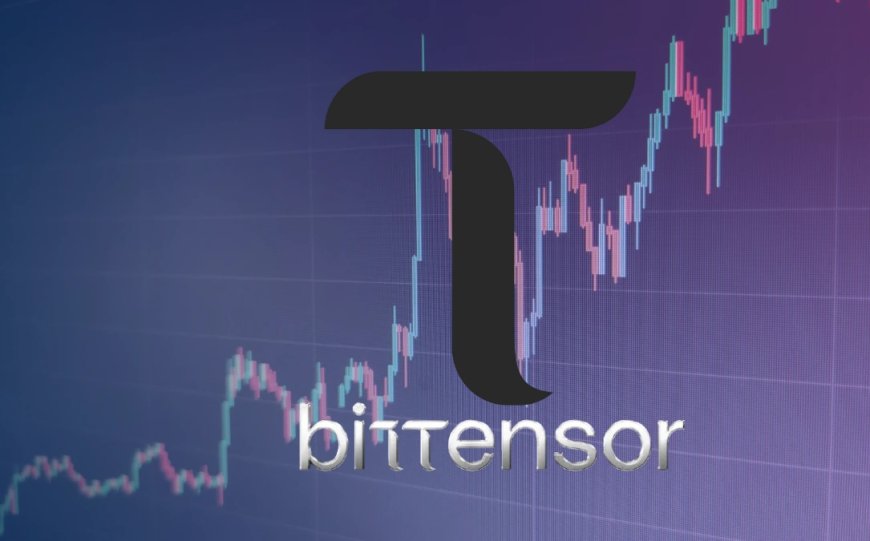
Introduction
In the evolving world of Web3, decentralization isn't just reshaping finance but also the realms of AI and machine learning. Just as decentralized finance (DeFi) has disrupted traditional banking, decentralized AI has the potential to transform data sharing, collaboration, and the incentives around machine intelligence. BitTensor, a pioneering project, seeks to marry AI with blockchain technology, creating a future where anyone can contribute to and benefit from AI's growth. In this article, we'll explore the importance of decentralization in AI, how BitTensor fits into this landscape, and the revolutionary potential of combining AI with blockchain.
The Current State of AI and Blockchain
Today, AI development is largely centralized, with major tech giants such as Google, Microsoft, and OpenAI leading the charge. These companies leverage vast data centers to train machine learning models with billions of parameters, from OpenAI's DALL-E, which generates images from text, to GitHub's Copilot, which assists with code. However, while their models are powerful, they are also resource-intensive and costly, making them inaccessible to the general public.
The concept of decentralization introduced by blockchain technology offers a solution. Bitcoin, for instance, transformed digital trust and consensus by allowing decentralized transactions. It incentivized a network of miners to maintain its ledger, creating a secure and transparent financial ecosystem. Blockchain's consensus mechanisms could be applied to AI, creating a decentralized marketplace where machine learning contributions are rewarded, fostering a new era of collaboration and innovation.
Why Decentralized AI?
Decentralized AI aims to democratize access to machine learning capabilities, creating opportunities for collaboration across the globe. By decentralizing AI, we can reduce the concentration of power among tech giants, making AI research more accessible, affordable, and transparent. BitTensor brings these benefits to reality by building a decentralized neural network that rewards contributors for valuable inputs, much like Bitcoin rewards miners for securing the network.
1. Access for All: In centralized AI, only a handful of companies control the data and resources needed to develop large models. Decentralized AI networks like BitTensor distribute these resources, allowing a global community of developers to contribute and benefit from machine learning advancements.
2. Innovation and Collaboration: Decentralized AI fosters innovation by enabling open-source contributions. Collaborators can build upon each other's work, resulting in faster advancements and richer models.
3. Incentivized Participation: By leveraging blockchain's incentive mechanisms, decentralized AI networks reward participants based on the value they contribute. This aligns incentives and accelerates AI development.
BitTensor: Bringing AI to the Blockchain
BitTensor seeks to harness blockchain's potential in the world of AI by applying Bitcoin's consensus principles to machine intelligence. Instead of a traditional proof-of-work model where computational efforts are discarded, BitTensor rewards valuable knowledge contributions, creating a sustainable system for building AI collaboratively. Let's dive into BitTensor's unique approach:
1. Decentralized Neural Networks: BitTensor builds decentralized neural networks that allow participants to contribute to AI development by training machine learning models on data from various sources. By doing so, BitTensor creates a global network where AI models can learn from diverse data, improving their accuracy and robustness.
2. Incentivized Knowledge Sharing: In the BitTensor network, contributors (miners) run neural network models, generating valuable insights. Validators then query these models, assessing the quality of their responses. This consensus mechanism rewards high-quality contributions, encouraging meaningful participation.
3. Cryptocurrency Incentives: BitTensor uses a native currency called Tau, similar to Bitcoin in its limited supply and halving events. Contributors are rewarded with Tau tokens, incentivizing the creation and sharing of knowledge. This incentivized structure ensures the sustainability and scalability of the network.
4. Polkadot Integration: Built on the Polkadot substrate, BitTensor is designed for interoperability. This compatibility opens up the potential for BitTensor to connect with other decentralized networks, expanding its reach and impact within the Web3 ecosystem.
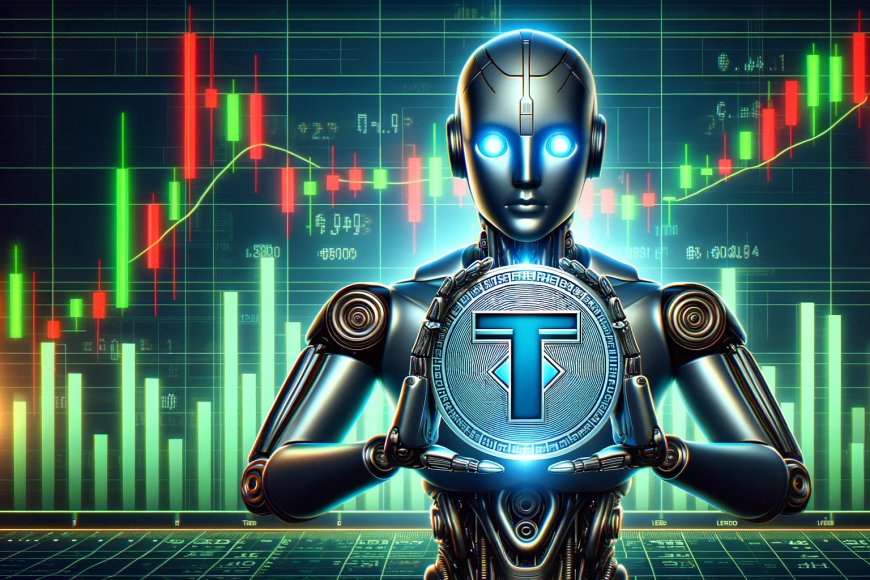
How BitTensor Transforms AI and Machine Learning
BitTensor represents a paradigm shift in AI development. By decentralizing machine learning research, it lowers the barriers to entry, enabling more researchers and developers to participate in AI innovation. The benefits are manifold:
1. Cost-Effective Training: Training advanced AI models can cost millions of dollars, placing a heavy burden on smaller research groups. BitTensor democratizes this process, allowing anyone with computational resources to contribute, reducing the cost of AI development.
2. A Global Network of AI Models: Unlike traditional AI companies that operate in silos, BitTensor enables a decentralized network of AI models that can share knowledge. By fostering collaboration, BitTensor improves the accuracy and robustness of AI models, leading to higher-quality outputs.
3. Improved Data Diversity: Centralized AI models are often trained on data from limited sources, which can introduce biases. BitTensor's decentralized approach allows models to train on diverse data from a global community, resulting in more representative and fair AI systems.
4. Open-Source AI Innovation: BitTensor promotes open-source innovation, enabling AI models to build upon each other's progress. This approach fosters creativity and accelerates AI development, ultimately benefiting the entire ecosystem.
Applications of Decentralized AI with BitTensor
The decentralized approach of BitTensor opens up numerous applications, including:
1. Enhanced Natural Language Processing (NLP): BitTensor’s decentralized structure allows NLP models to learn from diverse language datasets across the globe, improving their understanding of linguistic nuances and cultural contexts.
2. Decentralized Data Sharing: BitTensor provides a platform where researchers can share data, algorithms, and insights, fueling the development of more accurate and efficient AI models. This approach is particularly valuable in fields like healthcare, where data sharing can accelerate breakthroughs in medical research.
3. Collaborative AI Development: BitTensor encourages AI models to collaborate and learn from each other. For instance, different models specialized in various domains, such as image recognition or sentiment analysis, can exchange knowledge, enhancing each other's capabilities.
4. Distributed Machine Learning Resources: By distributing computational resources across a global network, BitTensor allows researchers from all backgrounds to contribute to AI advancements. This democratization expands access to machine learning tools and accelerates the pace of innovation.
Conclusion: A Future of Decentralized AI
BitTensor's decentralized AI network represents a vision where machine learning is open, accessible, and collaborative. By aligning incentives and leveraging blockchain technology, BitTensor empowers a global community to contribute to AI development. This approach not only accelerates the pace of innovation but also democratizes access to AI, ensuring that its benefits are shared more widely.
In the future, as decentralized AI networks continue to grow, we can expect to see more collaboration across industries, fostering advancements that benefit everyone. BitTensor stands at the forefront of this transformation, paving the way for a new era of AI on the blockchain. As we continue to embrace the possibilities of Web3, decentralized AI will play a crucial role in shaping a more inclusive and equitable digital future.
Source : @The Bittensor Hub.

